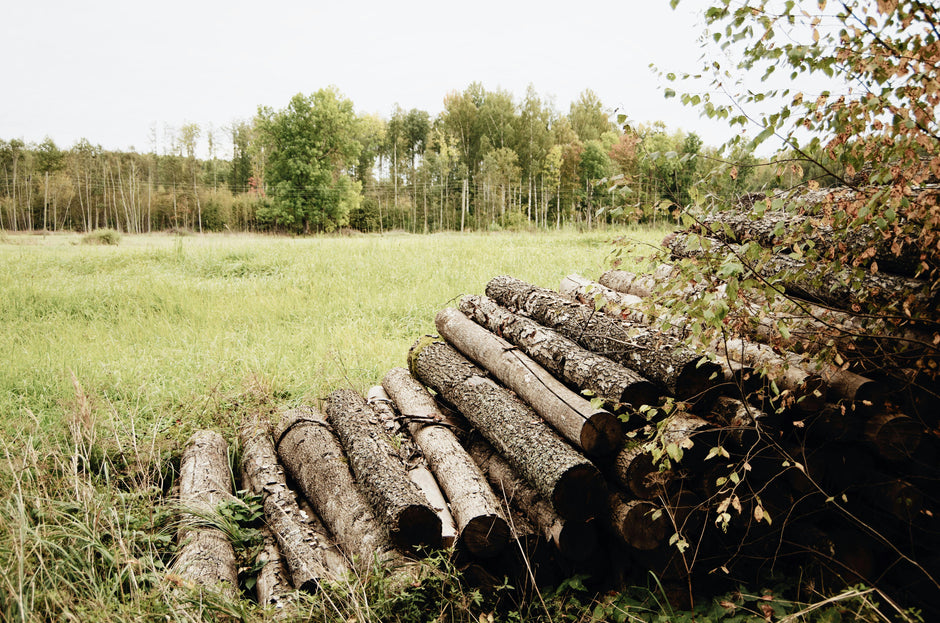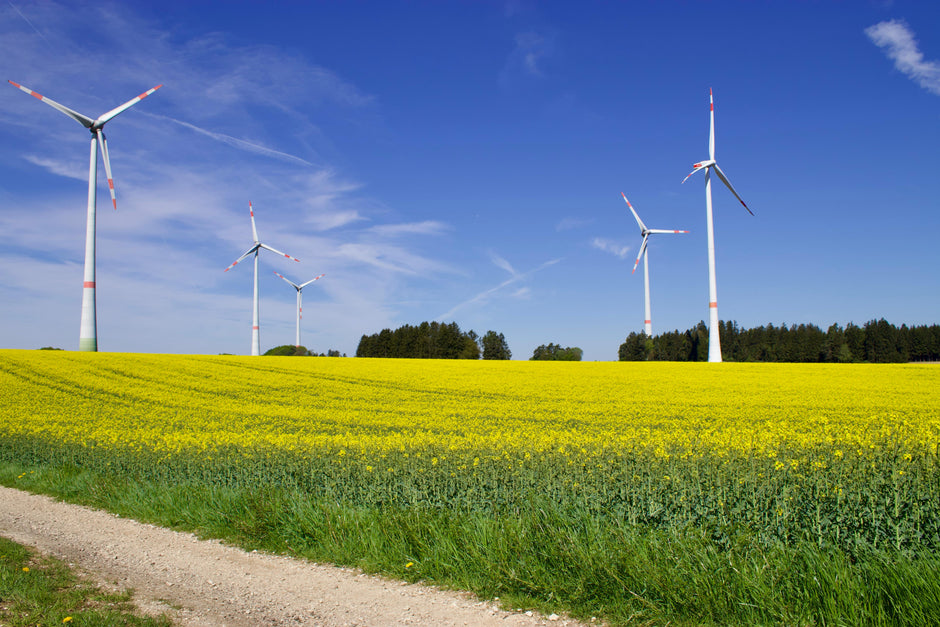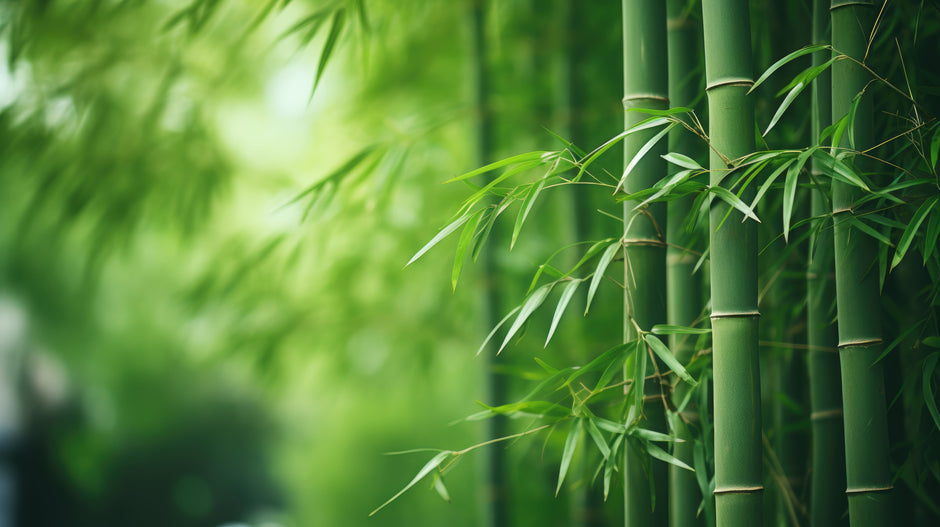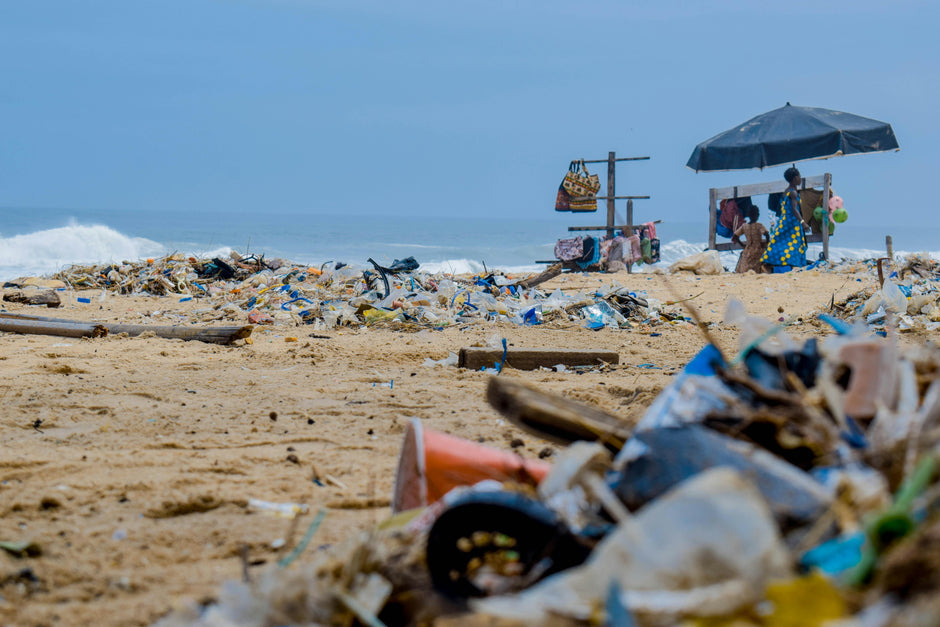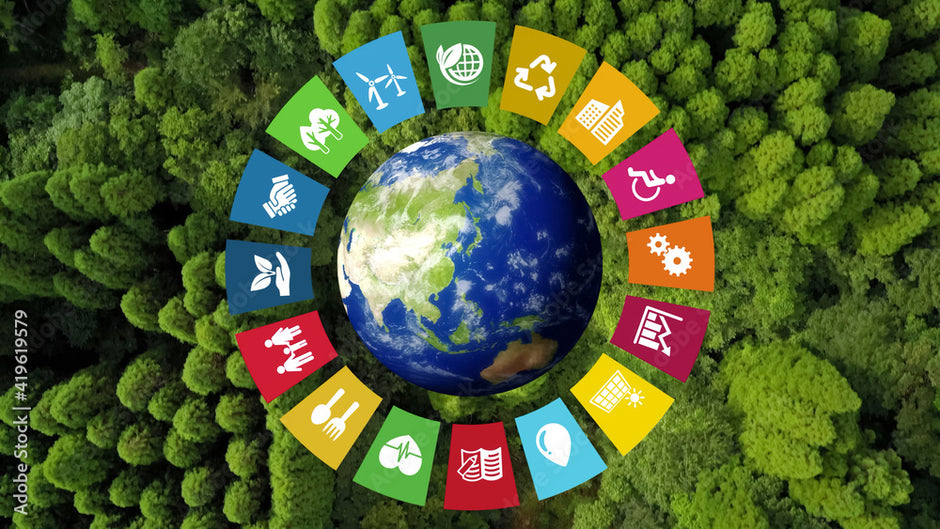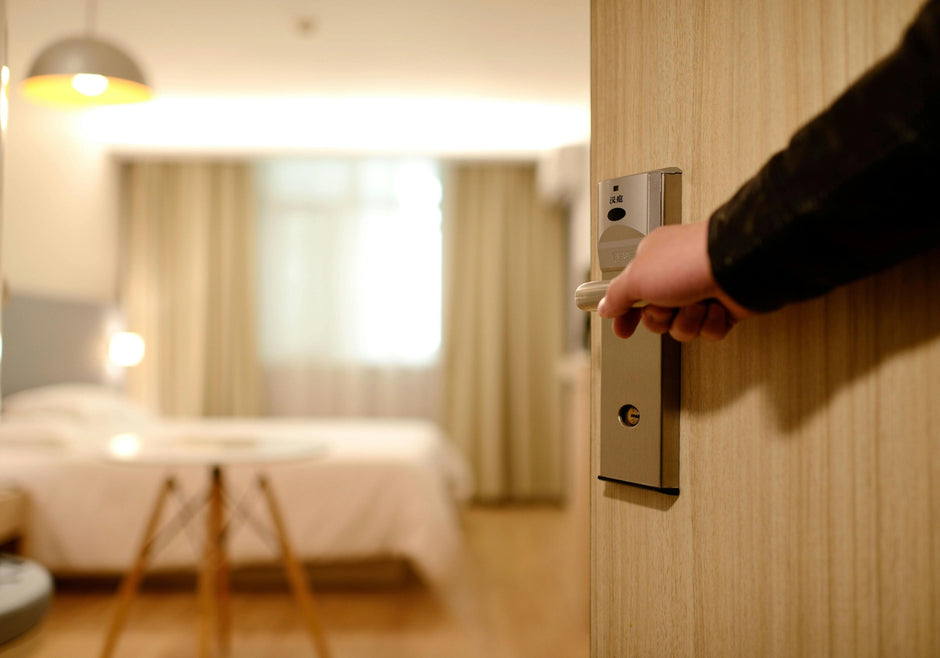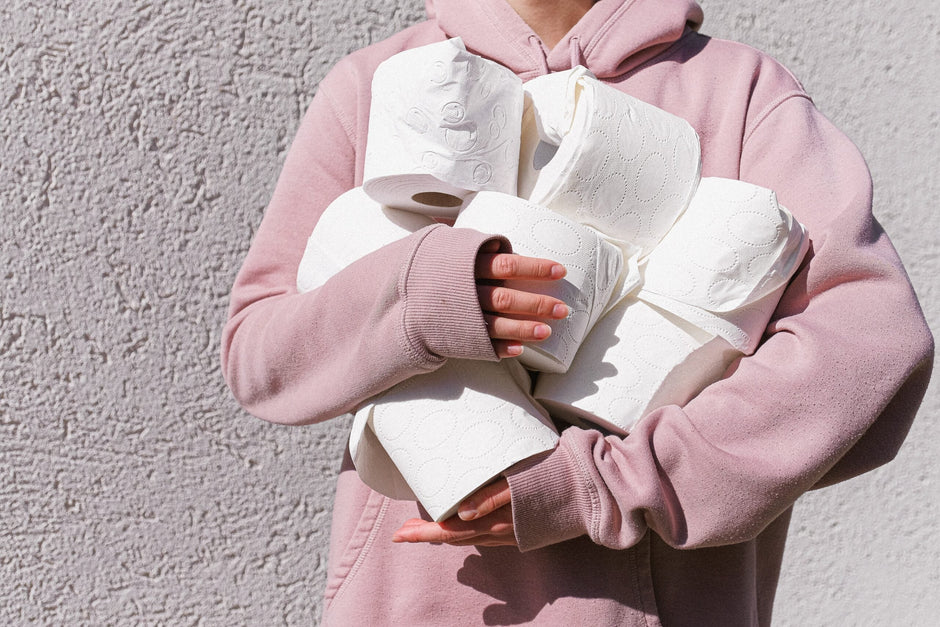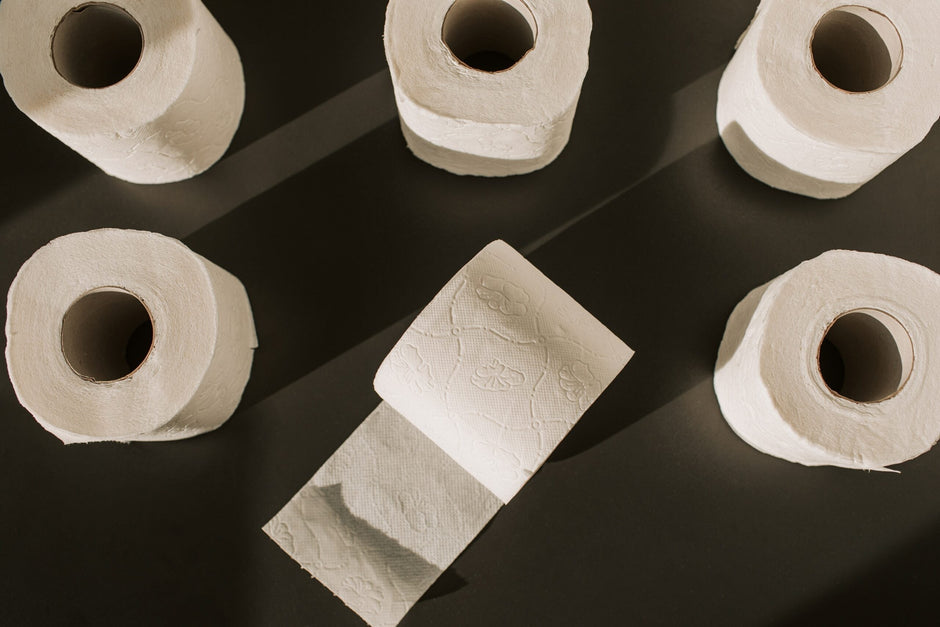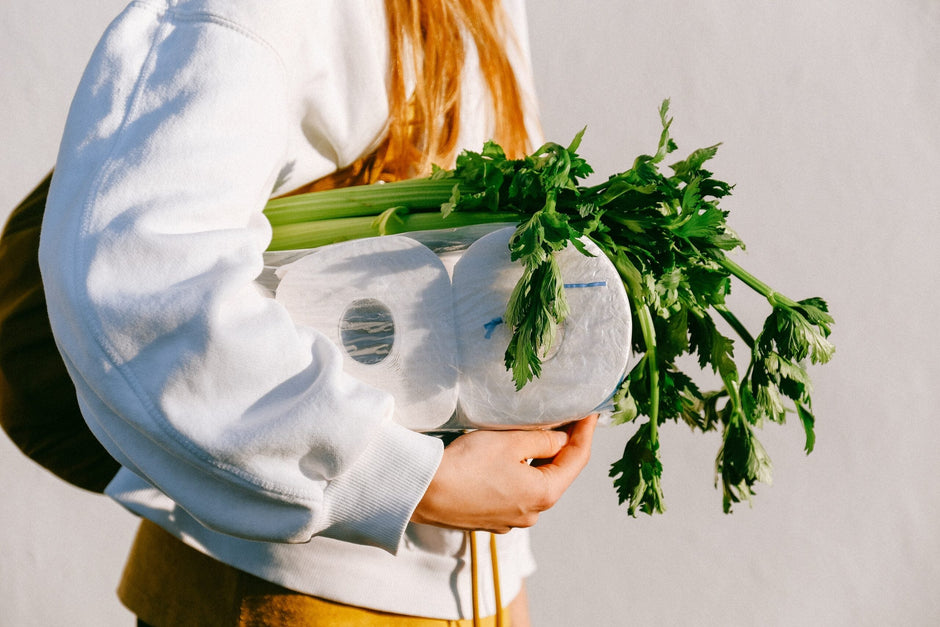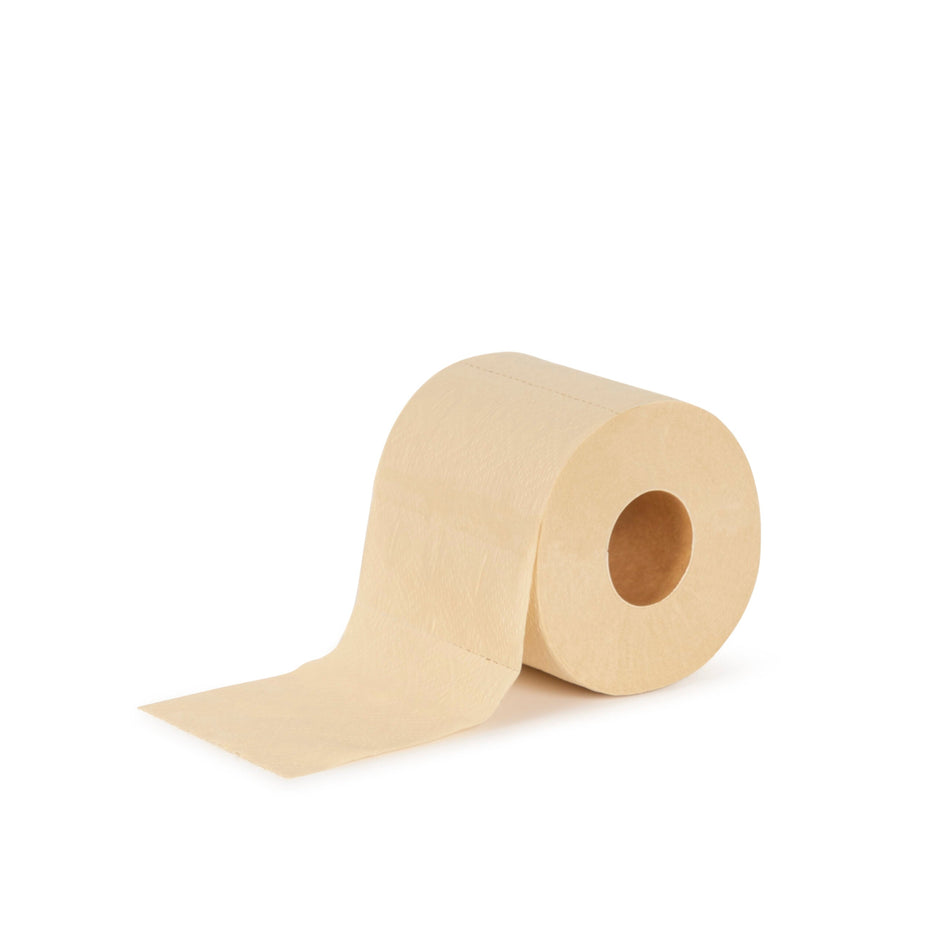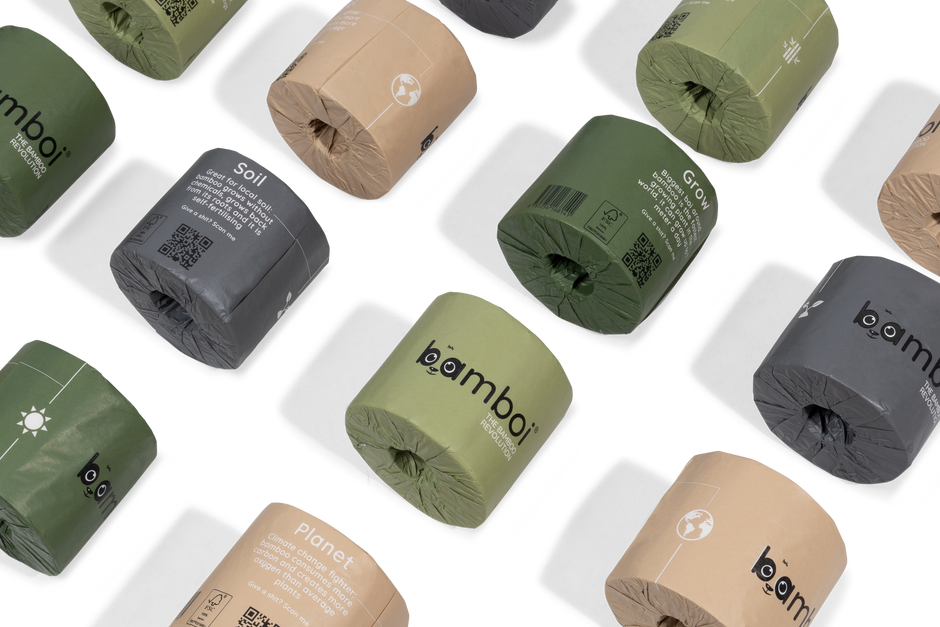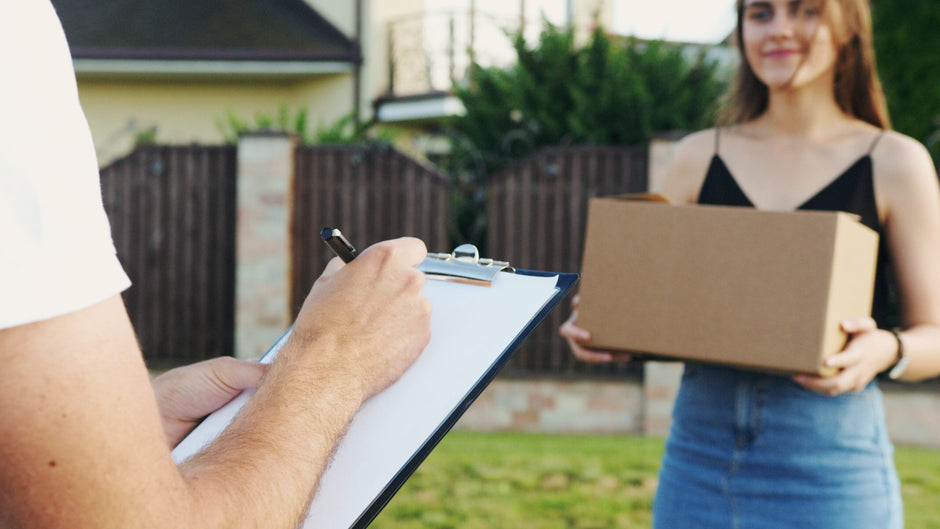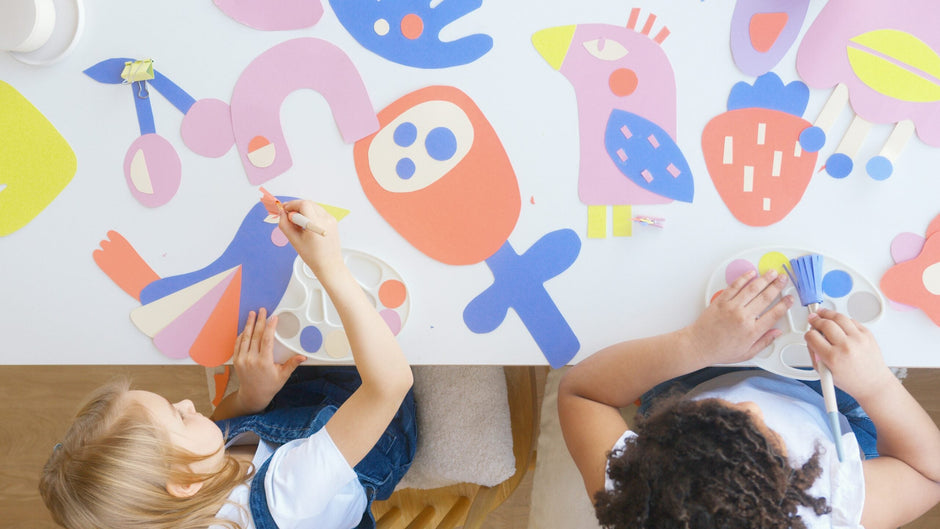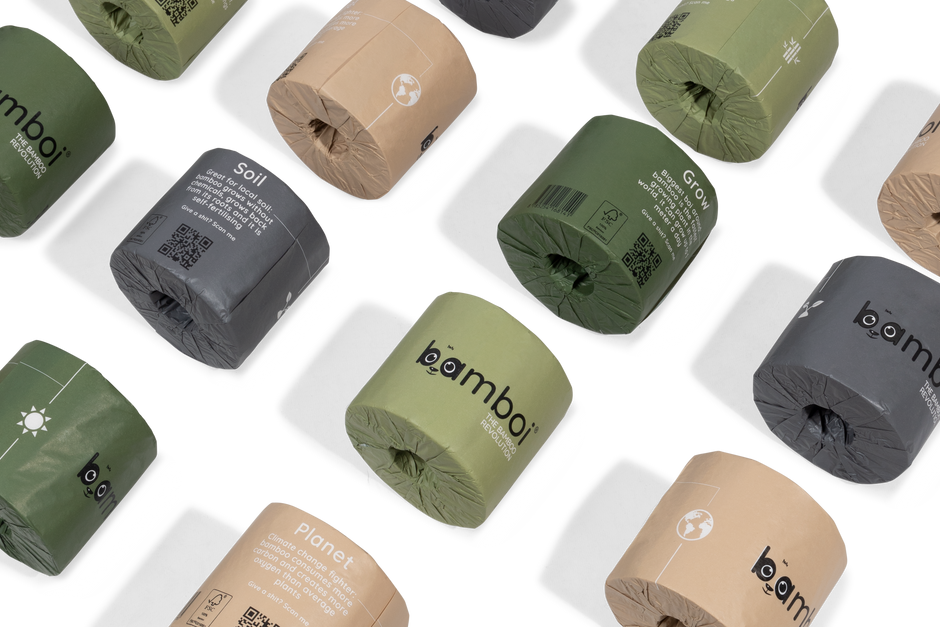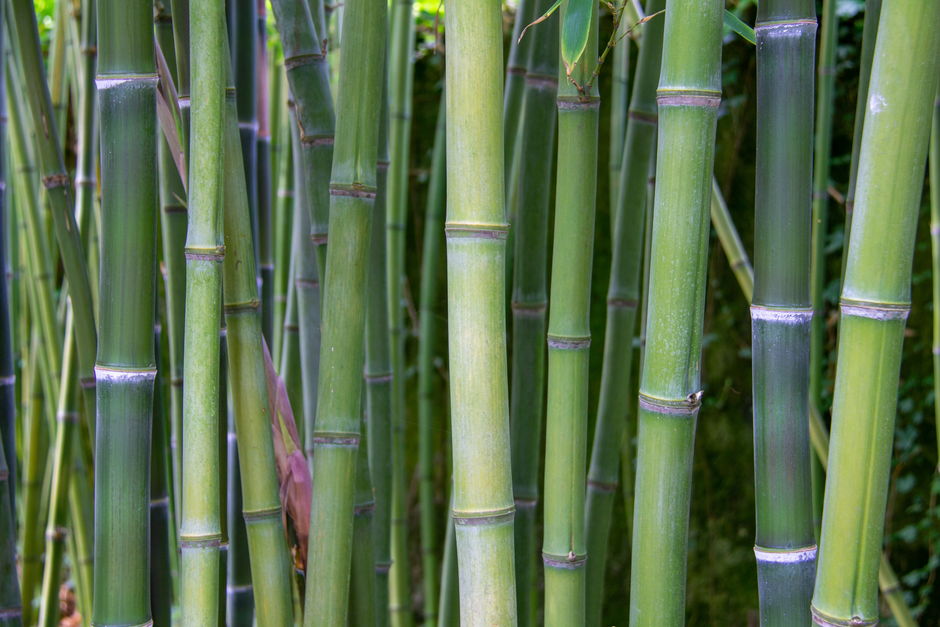Published in de Volkskrant on October 9, 2022. Written by Liam van de Ven. Photos taken by and property of Raymond Rutting. Also available for reading at https://www.volkskrant.nl/economie/ondernemen-in-duurzaam-wc-papier-deze-twee-jonge-ondernemers-doen-het-rol-voor-rol~bc039ae4/
The 24-year-old students Leroy Ranglek and Joseph Nickisch wanted to bring a product to market together. But what? It became bamboo toilet paper; a solution for the emissions and environmental damage associated with paper production.

Joseph Nickisch, co-owner of Bamboi, demonstrates the strength of the paper.
Image: Raymond Rutting / de Volkskrant
On a sunny day in April 2021, a colossal container truck pulled into a storage facility in Hoofddorp. A group of students watched in awe, faced with the herculean task of unloading. It was more than 50,000 rolls of toilet paper, packed in 9-kilogram boxes each. This was the first delivery, straight from China, for the startup Bamboi founded by students Leroy Ranglek and Joseph Nickisch (both 24).
Dutch customs also showed up, but quickly decided against checking every box. Half of the shipment went into a few garage boxes, the other half to Nickisch’s student house. “The attic there could only support five hundred kilograms, and in the end we stored over five thousand kilograms of rolls.”
More than a year later, they laugh about it, but they certainly haven’t forgotten the nightmare from back then. “And we only paid our friends who helped us move about twenty euros, even though we ended up working for more than six hours.”
Old trees
According to Ranglek and Nickisch, bamboo is a solution to the emissions and environmental damage associated with paper production. Cutting down thirty-year-old trees for toilet paper that is used only once is a crime, they believe. Bamboo, on the other hand, can be fully regrown in just three months.
Furthermore, Ranglek explains: bamboo grows best when it is regularly harvested. When a bamboo forest is well-maintained, it absorbs far more CO₂ than a conventional forest. The harvested bamboo can be turned into pulp that is highly suitable for making paper. A win-win situation for both the environment and for the two toilet paper entrepreneurs.
Nickisch and Ranglek became friends in their first year of secondary school in Amsterdam. Together they have had over a dozen part-time jobs and small ventures, ranging from street sales to hospitality. At one point, they even launched a small e-commerce platform, long before bamboo paper appeared on their radar. It was a given that they would become entrepreneurs together. The only question was: in what?
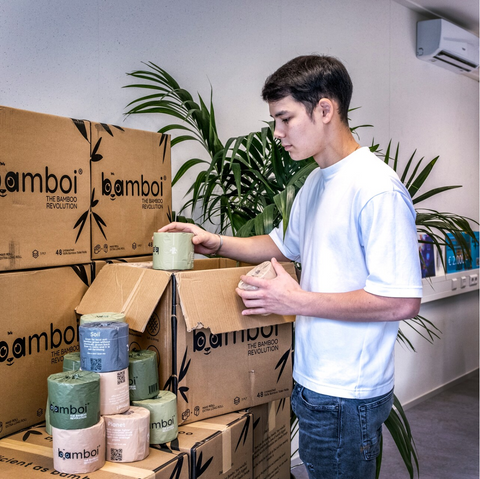
Leroy Ranglek came up with the idea to launch bamboo toilet paper on the market.
Image: Raymond Rutting / de Volkskrant
Ranglek came up with the idea to bring bamboo toilet paper to market. “I wanted to sell something that everyone uses. A friend’s father owned a garbage bag company, and from there my thoughts eventually led me to toilet paper. So I researched: is toilet paper actually sustainable? It turned out not to be, as so many trees are cut down. Now, since I come from Thailand, where bamboo is widely used, I wondered: why don’t we make toilet paper out of bamboo?” The idea then made it onto the drawing board. After all, as the founders say, “who would start a toilet paper company as a young guy?”
After two years, the duo decided to take the plunge; the idea was too good to pass up. They drafted a business plan. Nickisch, who studies International Business Administration, handled communication, customer relations, and the brand. Ranglek, a Mechanical Engineering student, knew how to get a product manufactured on the other side of the world.
They ordered dozens of prototypes from just as many different manufacturers until they finally arrived at a product that met all the requirements. Softness, strength, weight and, a key point for the entrepreneurs, being entirely made of bamboo. From core to wrapper, a Bamboi roll contains not a gram of regular paper.
Minor in Entrepreneurship
In the meantime, they enrolled in the minor in Entrepreneurship at the HvA. “We used that minor to turn our initial concept into a functional business plan,” says Nickisch. Once that was up and running, with their teachers looking on, they applied for a social credit line of 50,000 euros. They ended up receiving only half of that. Nickisch adds, “Because we’re young, they didn’t have enough confidence in us.” From their personal savings, they scraped together another 10,000 euros, just enough to order that first gigantic shipment.
Sales began through their own webshop and, among others, bol.com. “The biggest challenge was managing our inventory. Because we had to work with a tighter budget, we didn’t have enough space to order a second shipment, even as sales were soaring.”
About half a year after sales began, Ranglek appeared as a guest on a radio show on NPO4, after which thirty orders came in on one morning. “If that had continued, we would have sold out immediately and wouldn’t have been able to deliver. We would have been overwhelmed by our own success,” says Ranglek.
The most exciting moments for Bamboi are behind them. While the two complete their studies, they are more than working full-time to expand their company. In the startup world, they are a breath of fresh air among all the fast-paced tech entrepreneurs. They keep winning award after award for their entrepreneurship. And that they haven’t yet paid themselves? “We don’t mind,” says Ranglek. “In a year, we’ll surely be able to pay ourselves a salary, but for now that’s not so important. We both intend to roll out this company and tackle the paper industry; that’s the vision.” Order our bamboo toilet paper.
Company: BamboiLocation: Amsterdam
Since: 2020
Number of employees: 2
Revenue 2022: 34 thousand euros




